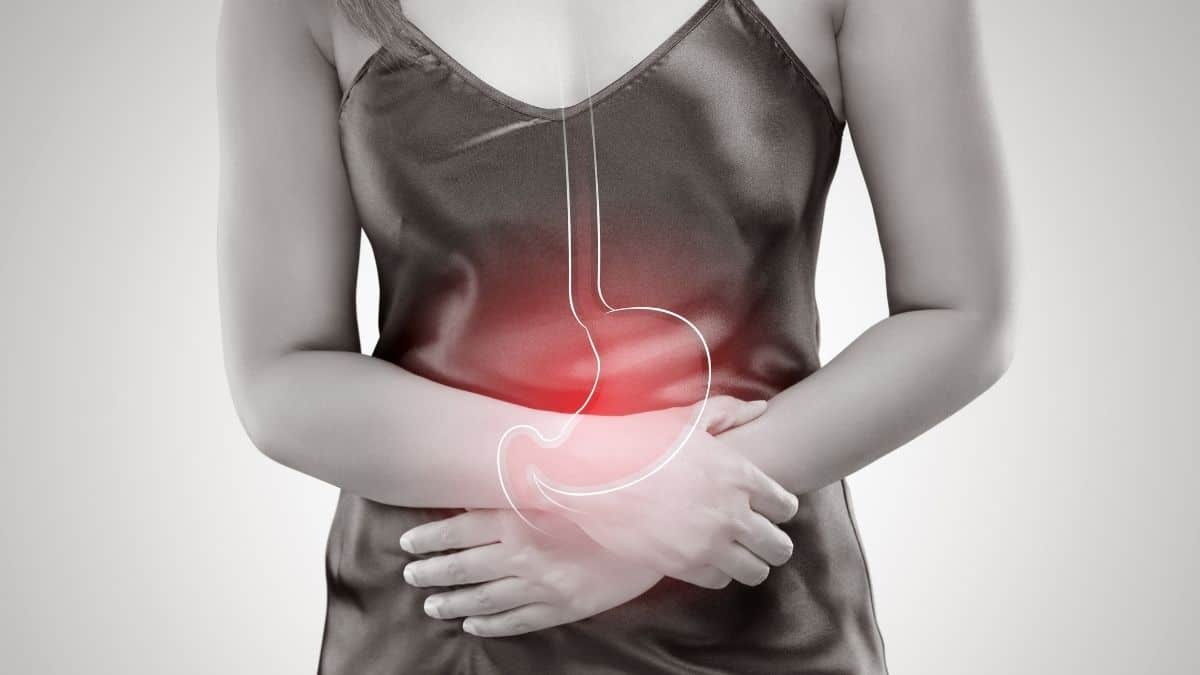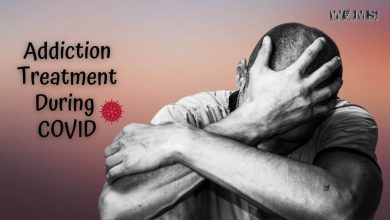Let’s Know the Causes, Symptoms, Diagnosis & Treatment of Gastritis

Gastritis is a broad term that describes conditions marked by inflammation, irritation, or stomach lining erosion. Inflammation from gastritis is caused by a bacterial infection, using certain pain relievers, or alcohol consumption.
Gastritis may be acute (occur suddenly) or chronic (develops slowly over time). It’s a common condition affecting one in hundred Americans. Most cases of gastritis are uncomplicated and readily respond to treatment. Untreated gastritis can lead to ulcers or certain types of cancers. Gastritis treatment involves drug treatment and certain lifestyle modifications.
What Causes Gastritis
Gastritis could result from a weakened or injured stomach lining, allowing digestive juices to cause inflammation of the stomach walls. The presence of diseases such as sarcoidosis and Crohn’s disease can also cause gastritis.
Risk factors for gastritis include:
Bacterial Infections
Helicobacter pylori, a bacteria present in the mucus lining, is the most common cause of gastritis. Genetics and an unhealthy lifestyle make individuals susceptible to H. pylori infections.
Analgesic Use
Indiscriminate use of pain-relieving medications can lead to inflammation of the stomach lining. Ibuprofen, aspirin, and naproxen are common analgesics that can lead to gastritis.
Alcohol Consumption
Prolonged alcohol consumption can erode the stomach lining leaving it susceptible to digestive juices.
Age
The stomach lining gets thinner with increasing age, so older individuals are more likely to develop gastritis. Older people are also more prone to H. pylori infections.
Stress
Conditions like surgery, burns, injury, and viral illnesses may cause acute gastritis.
Autoimmune Conditions
The body defense cells can begin to attack the cells of the stomach lining. People with autoimmune disorders are prone to this type of gastritis.
Symptoms of Gastritis
Gastritis symptoms vary among individuals, and some people with the condition show no symptoms. The most common symptoms of gastritis include:
- Abdominal pain
- Abdominal bloating
- Heartburn
- Acid reflux
- Nausea and Vomiting
- Epigastric pain
- Morning cough
Diagnosis of Gastritis
A doctor will likely make a gastritis diagnosis after speaking with a patient and evaluating their medical history. The treating physician may carry out some tests to determine the exact cause of the condition.
pylori Tests
A physician may order a blood, breath, or stool test to determine the presence of H. Pylori in the stomach.
Stomach Endoscopy
An endoscope is pushed down the throat into the stomach to look for signs of inflammation. Stomach tissue samples may also be taken to detect the presence of H. pylori in the stomach lining.
Stomach X-ray
An X-ray of the stomach, esophagus, and small intestine may be carried out to detect inflammation or other abnormalities.
Treatment of Gastritis
The cause of gastritis will determine the treatment course a doctor will recommend. The treatment course for gastritis includes:
Antibiotics to Kill H. pylori
When taken for one to two weeks, antibiotics like Amoxicillin, Clarithromycin, and Metronidazole will get rid of H. pylori in the stomach.
Antacids to Neutralize Stomach Acids
Antacids are alkaline drugs that neutralize stomach acids and provide quick pain relief. They can easily be obtained over the counter. Proton pump inhibitors like omeprazole and lansoprazole prevent acid production in the stomach and promote inflammation healing.
Histamine receptors blockers, also called acid blockers, reduce stomach acid production and are prescribed for treating gastritis. They include cimetidine, nizatidine, and famotidine.
Lifestyle Changes for Gastritis
Alongside traditional treatments, lifestyle changes can help prevent and treat gastritis. Consuming specific foods and avoiding some others, for instance, can help protect the stomach lining and prevent inflammation. The following modifications can help with gastritis:
Gastritis Diet
A gastritis diet protects the stomach lining and prevents the occurrence or progression of gastritis. No specific diet can accomplish this, but eating certain types of meals may help significantly.
H. pylori account for over 80 percent of gastritis cases. Foods that prevent H. pylori growth include cauliflower, berries, turmeric, and brassica vegetables. Antioxidant-rich foods like red cabbage, pecans, beans, and red grapes can also inhibit the growth of H. pylori.
Some foods help prevent gastritis symptoms caused by stomach lining inflammation. Eating fresh fruits, vegetables and avoiding sugary or processed foods help control those symptoms. Patients will also want to avoid spicy, acidic, or fried foods.
Yogurt and broccoli can help treat gastritis symptoms. Probiotic yogurt contains beneficial bacteria that aid the body’s ability to combat drug-resistant H. pylori infection. Broccoli contains sulforaphane – an antibacterial compound that can prevent and relieve gastritis symptoms.
Eating smaller meals multiple times can also reduce the production of digestive acids. Weight gain can be a risk factor for gastritis, so eating to lose weight or prevent weight gain can help prevent gastritis.
Dietary supplements and probiotics may also reduce gastritis symptoms. Omega-3 supplements and probiotics may help. It’s essential to speak with a doctor before using a supplement for gastritis.
Stress Reduction
Physical and mental stress can destabilize the human system leading to the secretion of stomach juices which cause inflammation. Stress reduction strategies like massage, meditation, and breathing exercises can prevent or reduce symptoms of gastritis.
Smoking and Alcohol Cessation
Smoking and alcohol use irritate the stomach lining and stimulate the production of stomach acids which cause gastritis. Excessive caffeine use may also trigger stomach acid production. Patients should reduce or possibly stop the use of cigarettes and alcohol.
Improving Personal Hygiene
Ensuring proper hygiene conditions like eating properly washed foods and drinking only clean water can prevent gastritis. Washing hands and living in a clean environment can prevent gastritis on a large scale.
Using Essential Oils
Some studies show that essential oil use can stop the spread of H. pylori bacteria. The oils are applied topically using a carrier oil. They may also be used in a diffuser to relieve gastritis symptoms. Examples include ginger, lemongrass, clove, and peppermint oils. The Food and Drug Administration doesn’t recognize the use of essential oils in gastritis treatment, so a doctor’s opinion may be necessary before using them.
Conclusion
Gastritis is a relatively common digestive problem. It isn’t always severe and readily responds to treatment. However, gastritis can lead to several complications if left untreated. Drug therapy and simple lifestyle modifications help prevent gastritis and take care of symptoms.




